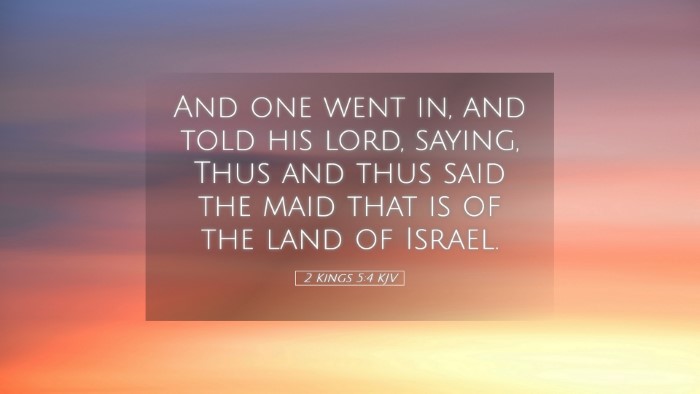Old Testament
Genesis Exodus Leviticus Numbers Deuteronomy Joshua Judges Ruth 1 Samuel 2 Samuel 1 Kings 2 Kings 1 Chronicles 2 Chronicles Ezra Nehemiah Esther Job Psalms Proverbs Ecclesiastes Song of Solomon Isaiah Jeremiah Lamentations Ezekiel Daniel Hosea Joel Amos Obadiah Jonah Micah Nahum Habakkuk Zephaniah Haggai Zechariah MalachiVerse
2 Kings 5:1 2 Kings 5:2 2 Kings 5:3 2 Kings 5:4 2 Kings 5:5 2 Kings 5:6 2 Kings 5:7 2 Kings 5:8 2 Kings 5:9 2 Kings 5:10 2 Kings 5:11 2 Kings 5:12 2 Kings 5:13 2 Kings 5:14 2 Kings 5:15 2 Kings 5:16 2 Kings 5:17 2 Kings 5:18 2 Kings 5:19 2 Kings 5:20 2 Kings 5:21 2 Kings 5:22 2 Kings 5:23 2 Kings 5:24 2 Kings 5:25 2 Kings 5:26 2 Kings 5:27

